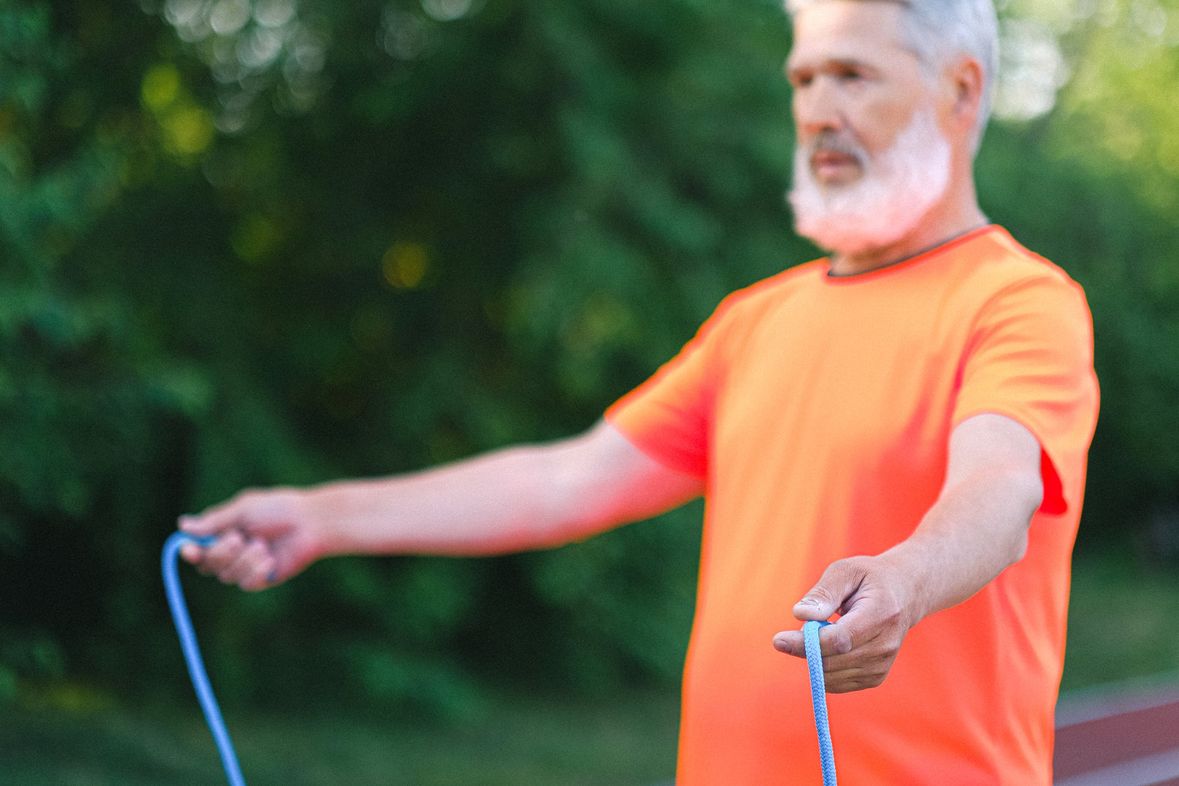The recent hot spell has been a welcome change for most of us after weeks of rain and dull weather, and for the elderly, feeling the sun on their skin and being able to enjoy some time outside has surely been wonderful!
However, it is important (for all of us), but for older people especially, to be prepared for the hotter weather, as high temperatures can be dangerous to their health.
Those aged 65 and over are most at risk of heat-related illnesses, and so Care In Kent has put together this short guide explaining how heat stress can affect the health of our elderly loved ones, the symptoms to look out for, and the steps we can take towards keeping older people safe and healthy this summer.
What Is Heat Stress?
Heat stress, also known as hyperthermia, is a condition that occurs when the body is unable to maintain a healthy temperature, and instead overheats. Normally the body cools itself in high temperatures by sweating – but, when sweating isn’t enough to regulate body temperature, and it keeps rising – and this is known as heat stress.
The symptoms of heat stress can range from mild, such as rashes and cramps, to more serious conditions such as heat stroke, which can be potentially life-threatening.
What Are The Symptoms Of Heat Stress?
The symptoms of heat stress can vary from person to person, but can include:
Muscle cramps
Rapid heartbeat
Pale skin
Fainting
Confusion
Disorientation
Delirium
Paleness
nausea/vomiting
The Risk Factors Of Heat Stress
There are some factors that can increase the likelihood of an older person suffering from heat stress, such as:
Living Alone – For elderly people who live alone, there is a greater risk that symptoms of heat stress will go unnoticed or ignored.
Self-Care Issues – Those who are frail, or who have mobility issues or mental illness might find it more difficult to take care of themselves in hot weather.
Chronic Medical Conditions – Conditions such as heart disease, circulation problems and obesity can make someone particularly vulnerable to heat stress.
Physical Changes – An ageing body doesn’t cope as well or as quickly with sudden stress as a younger one. Older skin doesn’t produce sweat as efficiently as younger skin, meaning that it’s much easier for an older person to overheat.
Medications – An elderly person is much more likely to take medications on a regular basis, and there are some medications that can affect the body’s ability to regulate temperature….
How Medications Can Be Affected In Hot Weather
It’s important to know how the medications that our elderly loved ones are taking might be affected by the warmer weather.
If you or your relative are unsure of the side effects of certain medications, a call to the GP is in order, as a lot of common medications can increase the risk of heart stress.
Just how these risks are increased depends on the medication, but some common examples are:
Antidepressants, antihistamines, phenothiazines and anticholinergics can affect the area of the brain that controls the skin’s ability to produce sweat.
Beta blockers can reduce the heart and lung’s ability to adapt to the stresses of hot weather
Amphetamines raise the body’s temperature
Diuretics encourage fluid loss and can cause dehydration
Opioids and sedatives can reduce the awareness of physical discomfort, making it easy to ignore the symptoms of heat stress.
How To Avoid Heat Stress
There are some simple ways to avoid heat stress that no doubt you’re already aware of:
Avoiding strenuous activity
Staying indoors
Drink water regularly
Wear cool, lightweight clothing
……and if you are caring for an elderly loved one you’ll probably already know the importance of these. However there are some other measures that you can take that can prevent the risk of heat stress even further.
Keep an eye on the weather report – We’re not often blessed with very high temperatures in this country, but the highest risk of heat stress is when the temperature approaches 30 degrees or more, so take special note of those rare days when the predictions are for 25 degrees plus. It’s also important to note the humidity levels as sweating isn’t as effective at keeping you cooler when it’s very humid.
Reduce caffeine and alcohol intake – It’s an idea to make sure that your elderly loved one limits the amount of tea, coffee and alcohol they consume during hot weather as all of these beverages have a mild diuretic effect.
Keep an eye on the colour of urine – very dark yellow urine is a classic sign of dehydration, and so if your elderly loved one notices that this is the case they should increase their fluid intake.
Review medications – A doctor might recommend that certain medications are avoided or doses are reduced during very hot weather, so it’s worth checking with a GP if an older person in your care takes regular medication.
Keep Cool – Keeping curtains or blinds pulled can keep rooms cooler, as can using electric fans or air conditioning units.
What To Do If Someone Is Suffering From Heat Stress
If someone is suffering from heat stress the important thing is to cool them down quickly, such as with a sponge/flannel and cool water, or a fan. Medical help should be sought immediately.
Caring for an elderly loved one can be as hard as it can be rewarding, and if you have other family or work commitments it can be a difficult balancing act. If you’re starting to feel overwhelmed, Care In Kent can help. We offer a range of services from respite care, to running errands and helping with personal care. Please feel free to get in touch with a member of our dedicated team to find out more.


